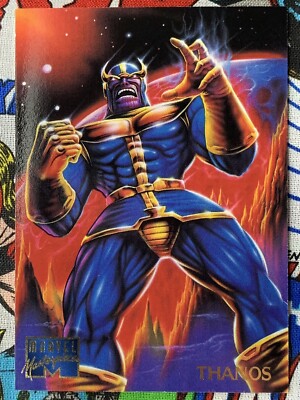The Enduring Legacy of Thanos in Popular Culture

Introduction
Thanos, the Mad Titan, is one of the most recognizable villains in modern pop culture, primarily known from the Marvel Cinematic Universe (MCU). Since his first major appearance in ‘Avengers: Infinity War’ (2018), Thanos has resonated deeply with audiences around the world. His complex character arc and philosophical motivations have not only made him a central figure in superhero narratives but also sparked extensive discussions about morality, power, and sacrifice. As Marvel continues to expand its universe, the relevance of Thanos remains palpable, influencing both storytelling techniques and audience expectations.
Thanos in the Marvel Cinematic Universe
Portrayed by Josh Brolin, Thanos is introduced in ‘Avengers: Infinity War’ as a formidable adversary who seeks the six Infinity Stones to eliminate half of all life in the universe. The film explores his tragic backstory, revealing a character torn by his upbringing on the devastated planet of Titan. This motivation for wielding power in order to create balance in the universe, albeit through catastrophic means, has earned Thanos a unique place in cinematic villainy, challenging the traditional perception of the antagonist.
The Impact of Thanos on Storytelling
The narrative legacy of Thanos has extended beyond the MCU. His character has influenced the way villains are portrayed in films and television, steering them towards more complex motivations rather than straightforward evil-doing. Additionally, discussions around Thanos have permeated into socio-political contexts, relating his ideological stance on resource allocation and morality to real-world issues of inequality and sustainability. Numerous articles, podcasts, and videos have emerged, dissecting his character and the philosophical questions he raises.
The Evolution of Thanos in Comics and Screen
Since his creation by Jim Starlin in ‘The Invincible Iron Man’ #55 in 1973, Thanos has appeared in various comic arcs, often depicting his obsession with Death and his infamous quest for power. Following the success of the MCU, interest in the original comic storylines has surged, bringing forth debates among fans regarding deviations in character portrayal between issues and films. Such discussions have revitalised interest in comic books, illustrating the interconnectedness of various media.
Conclusion
Thanos’s impact on both the Marvel Universe and modern storytelling is irrefutable. As Marvel plots its future direction, speculation around potential returns or new interpretations of Thanos continues to capture the imagination of fans. The character serves as a powerful reminder of the nuances in storytelling, showing that villains can evoke sympathy and challenge audiences to reflect upon formidable ethical questions. As audiences eagerly await the next phases of superhero narratives, the legacy of Thanos stands as a testament to the power of compelling storytelling and character development.








